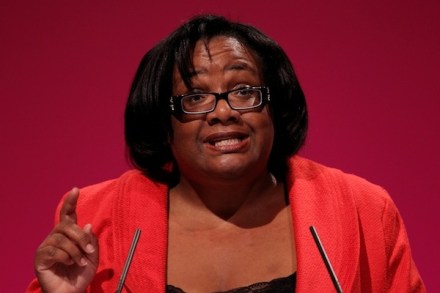Diane Abbott, darling of the reforming Right
Perhaps the Bilderberg conference has had a lasting effect on Parliament, after all. Today we saw what can only be a conspiracy between the Labour left and Michael Gove’s band of reforming right-wingers. As the Education Secretary unveiled his plans to reform GCSEs, he was accosted by Diane Abbott, rarely knowingly in agreement with much of what the Coalition is doing. But the Labour MP didn’t want to tell Gove he was wrong. She wanted to say he was right. She asked Gove whether he agreed that ‘an emphasis on rigorous qualifications and an emphasis on attaining core academic subjects is not, as is sometimes argued, contrary to the interests




















